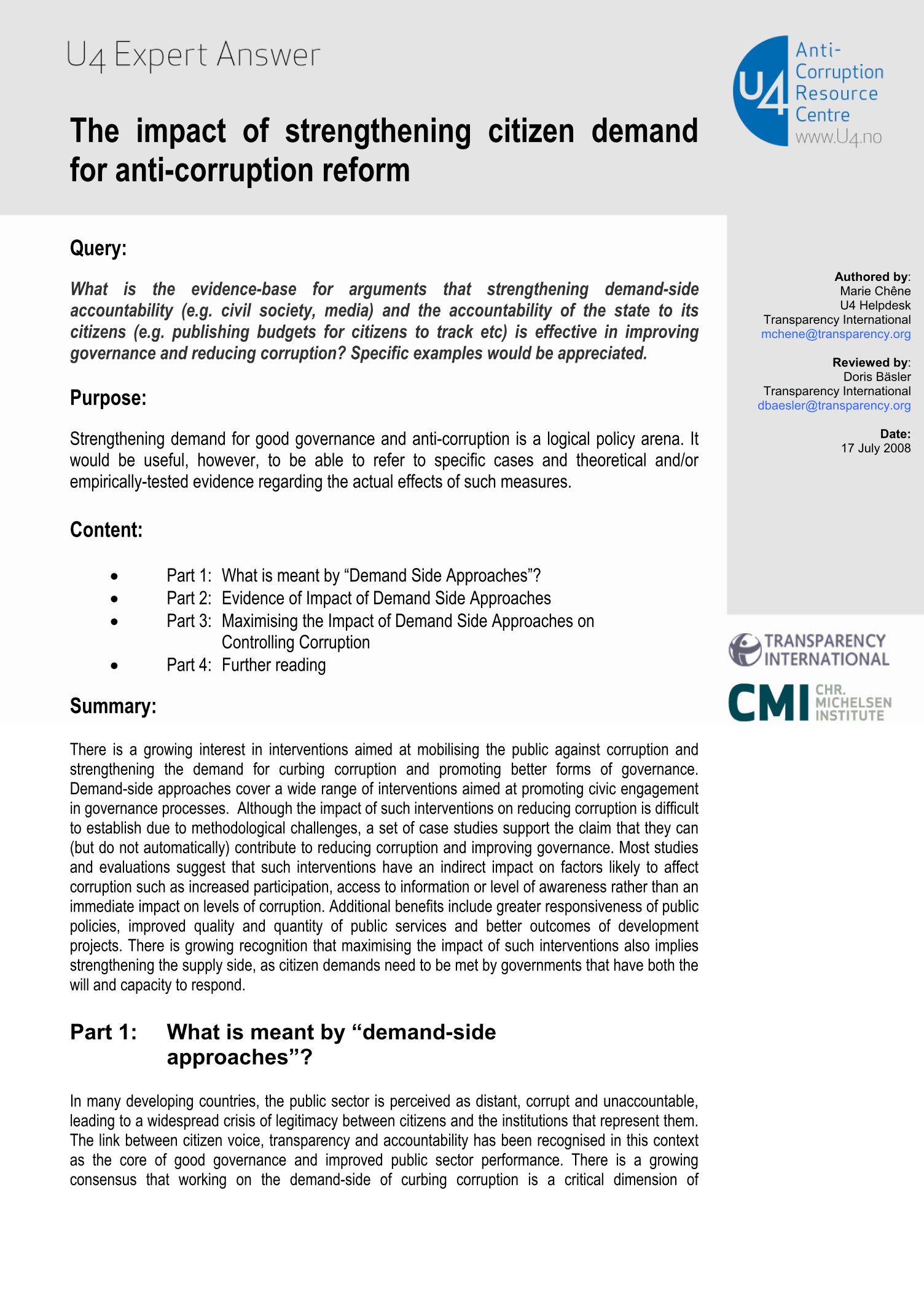U4 Helpdesk Answer
The impact of strengthening citizen demand for anti-corruption reform
There is a growing interest in interventions aimed at mobilising the public against corruption and strengthening the demand for curbing corruption and promoting better forms of governance. Demand-side approaches cover a wide range of interventions aimed at promoting civic engagement in governance processes. Although the impact of such interventions on reducing corruption is difficult to establish due to methodological challenges, a set of case studies support the claim that they can (but do not automatically) contribute to reducing corruption and improving governance. Most studies and evaluations suggest that such interventions have an indirect impact on factors likely to affect corruption such as increased participation, access to information or level of awareness, rather than an immediate impact on levels of corruption. Additional benefits include greater responsiveness of public policies, improved quality and quantity of public services and better outcomes of development projects.

Cite this publication
Chêne, M. 2008. The impact of strengthening citizen demand for anti-corruption reform. Bergen: U4 Anti-Corruption Resource Centre, Chr. Michelsen Institute (U4 Helpdesk Answer Helpdesk)
Disclaimer
All views in this text are the author(s)’, and may differ from the U4 partner agencies’ policies.
This work is licenced under a Creative Commons Attribution-NonCommercial-NoDerivatives 4.0 International licence (CC BY-NC-ND 4.0)